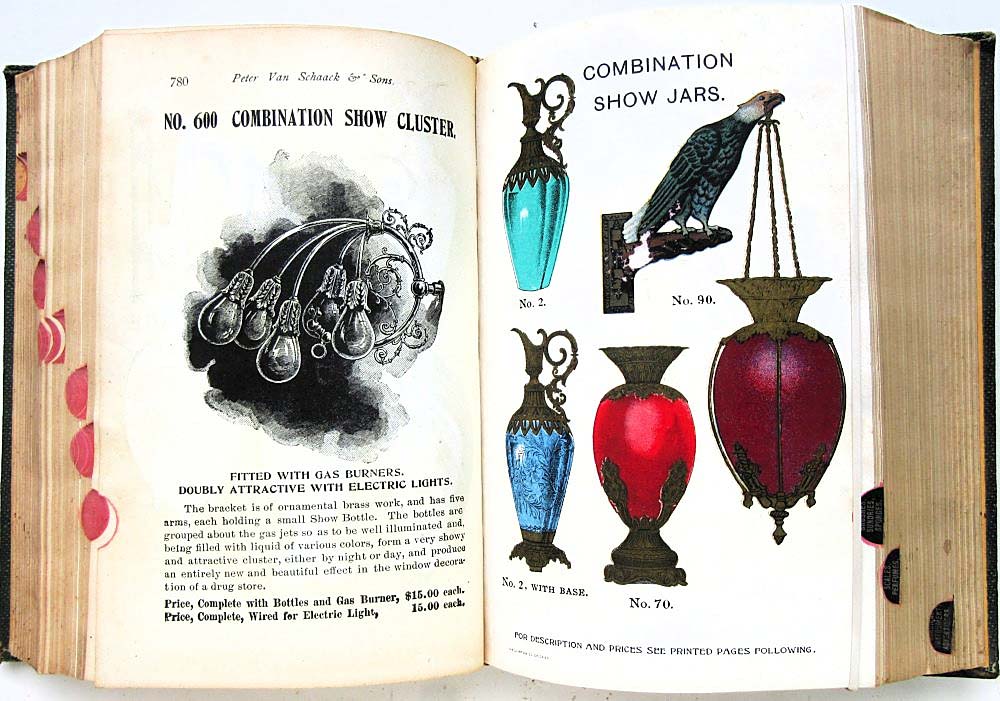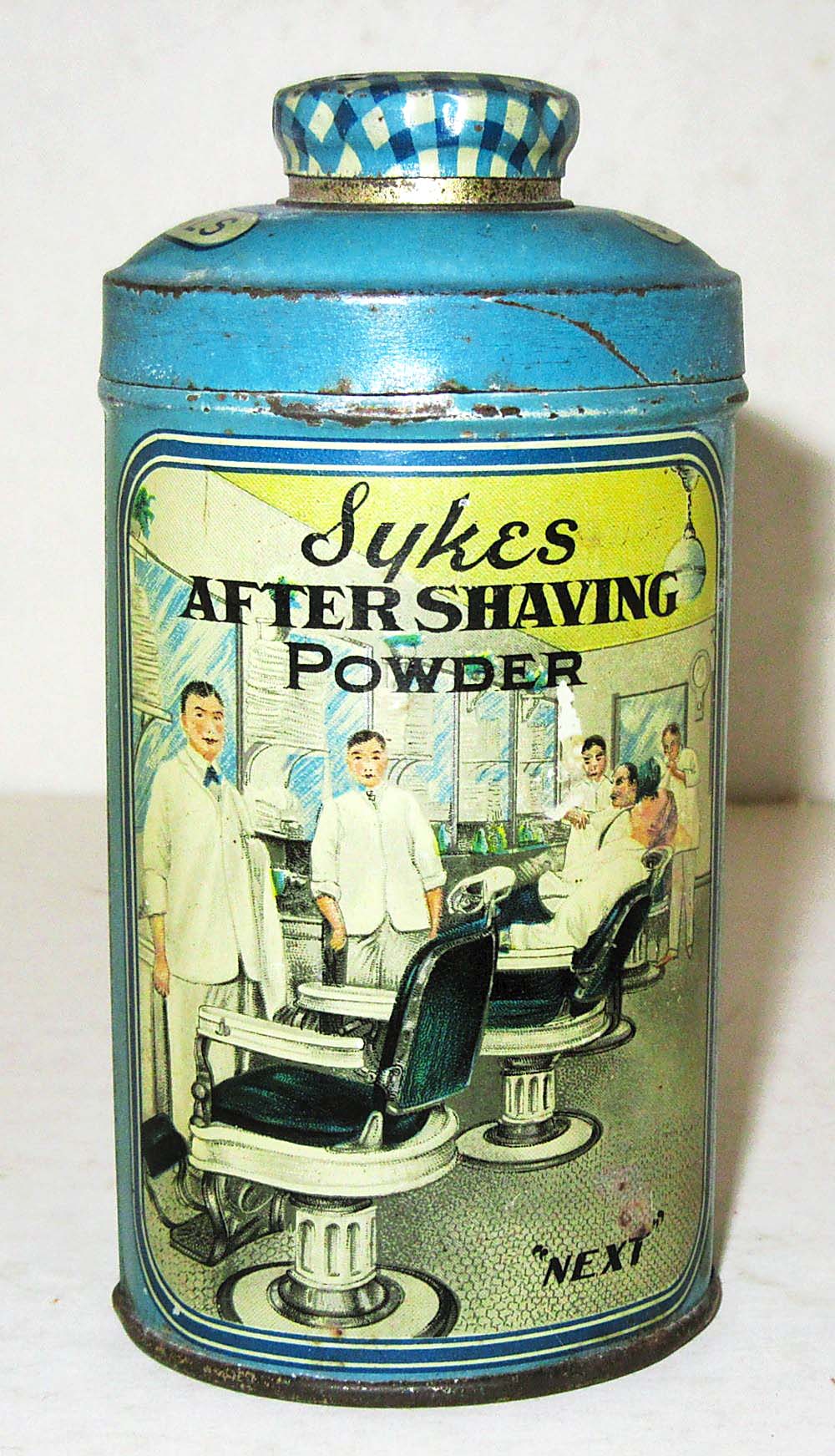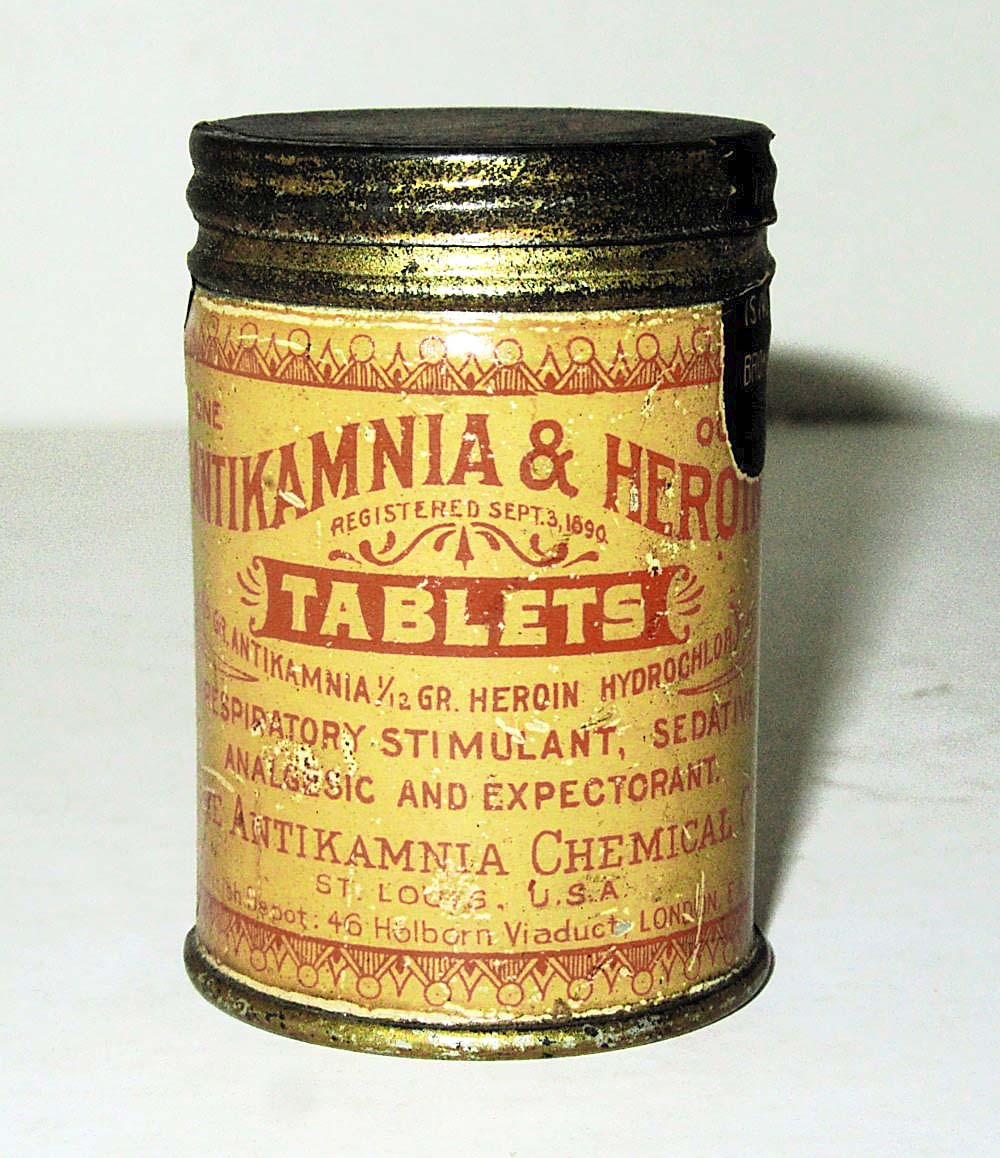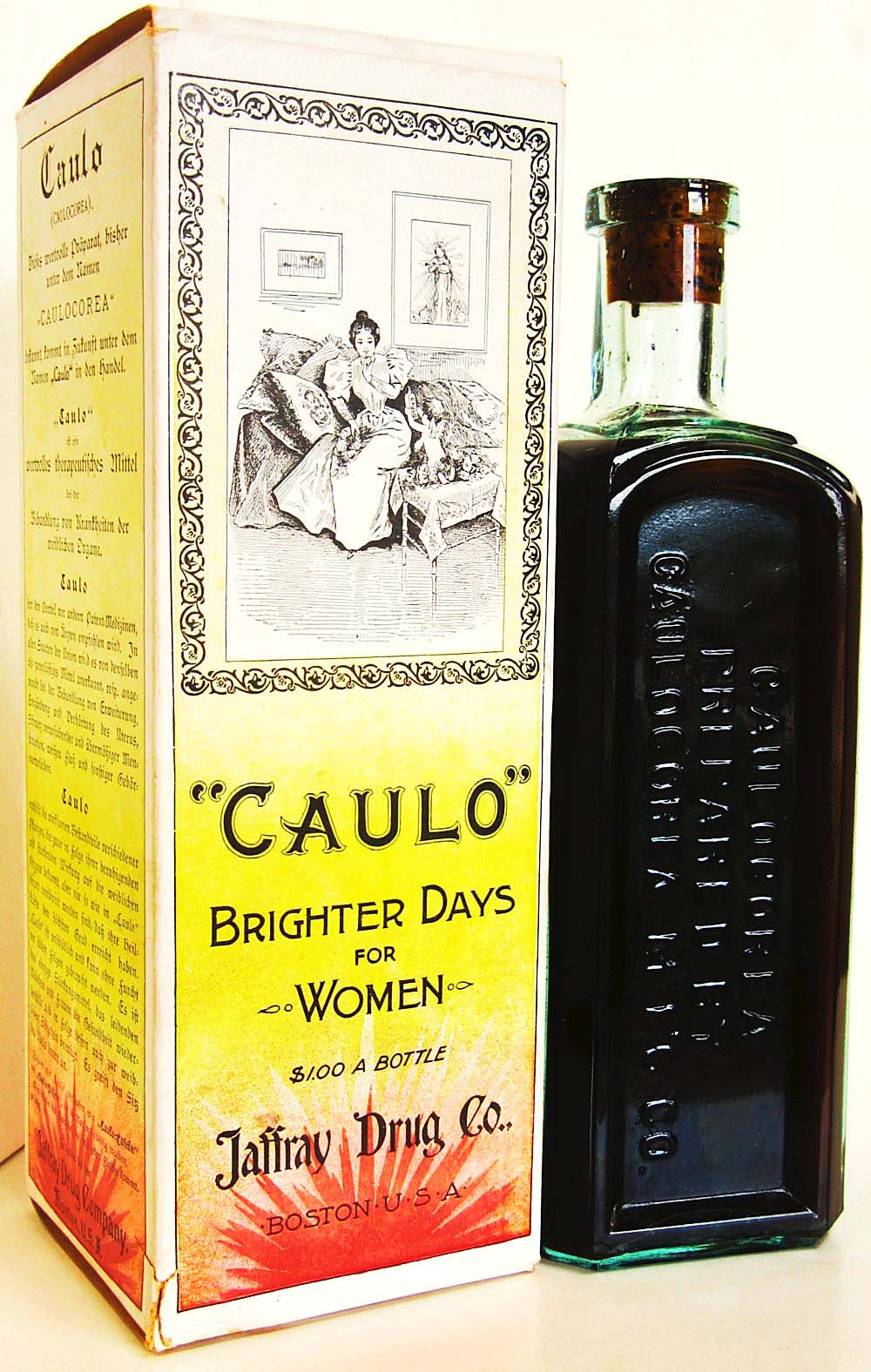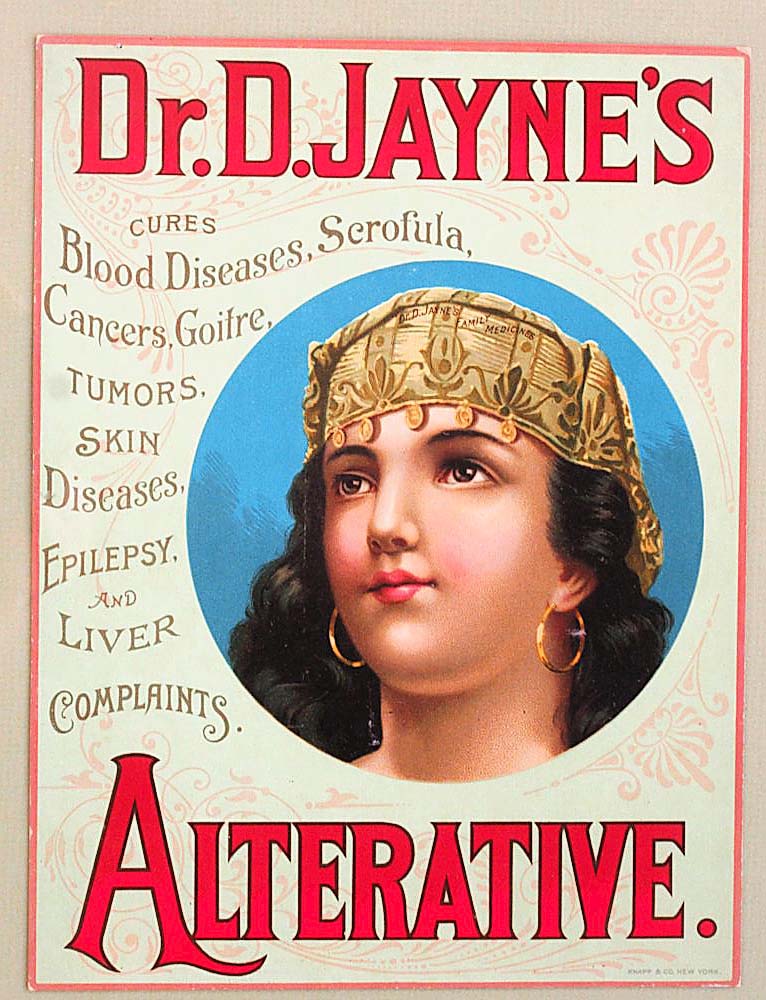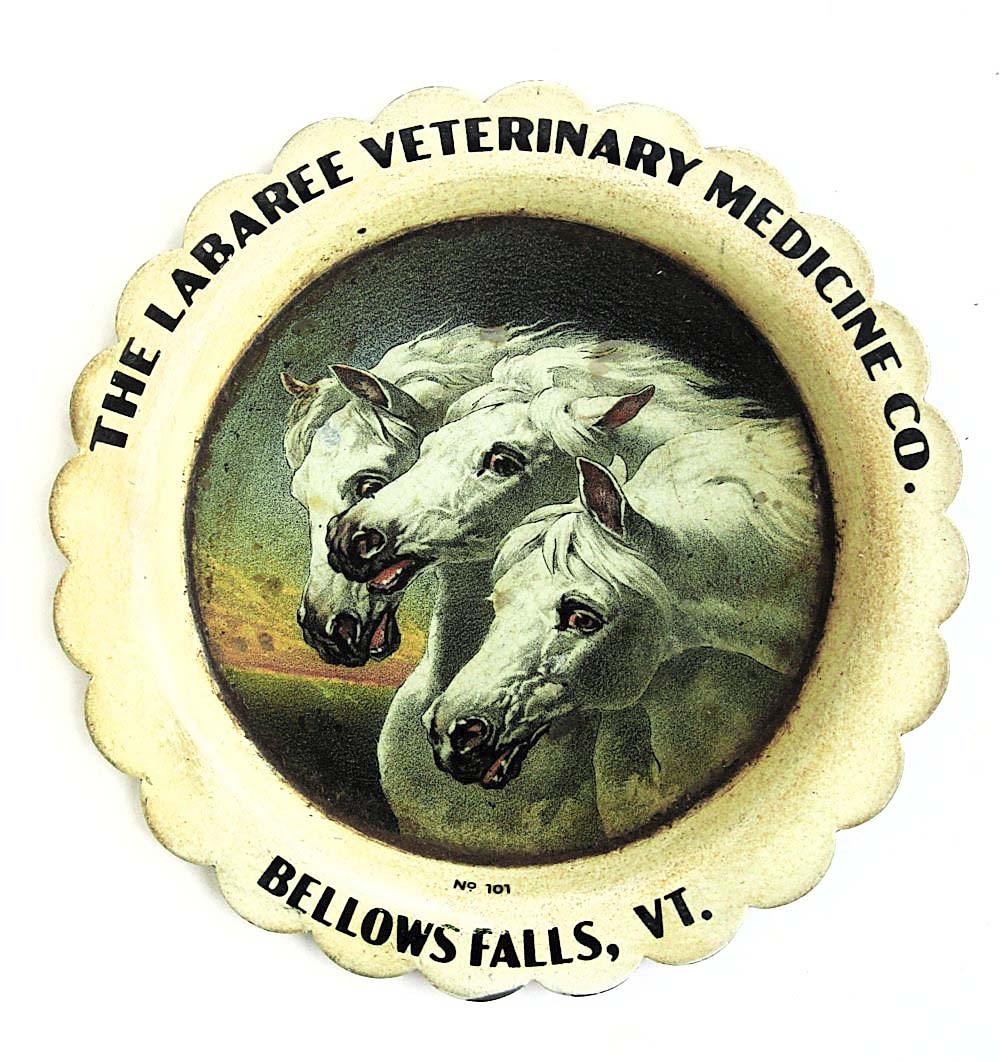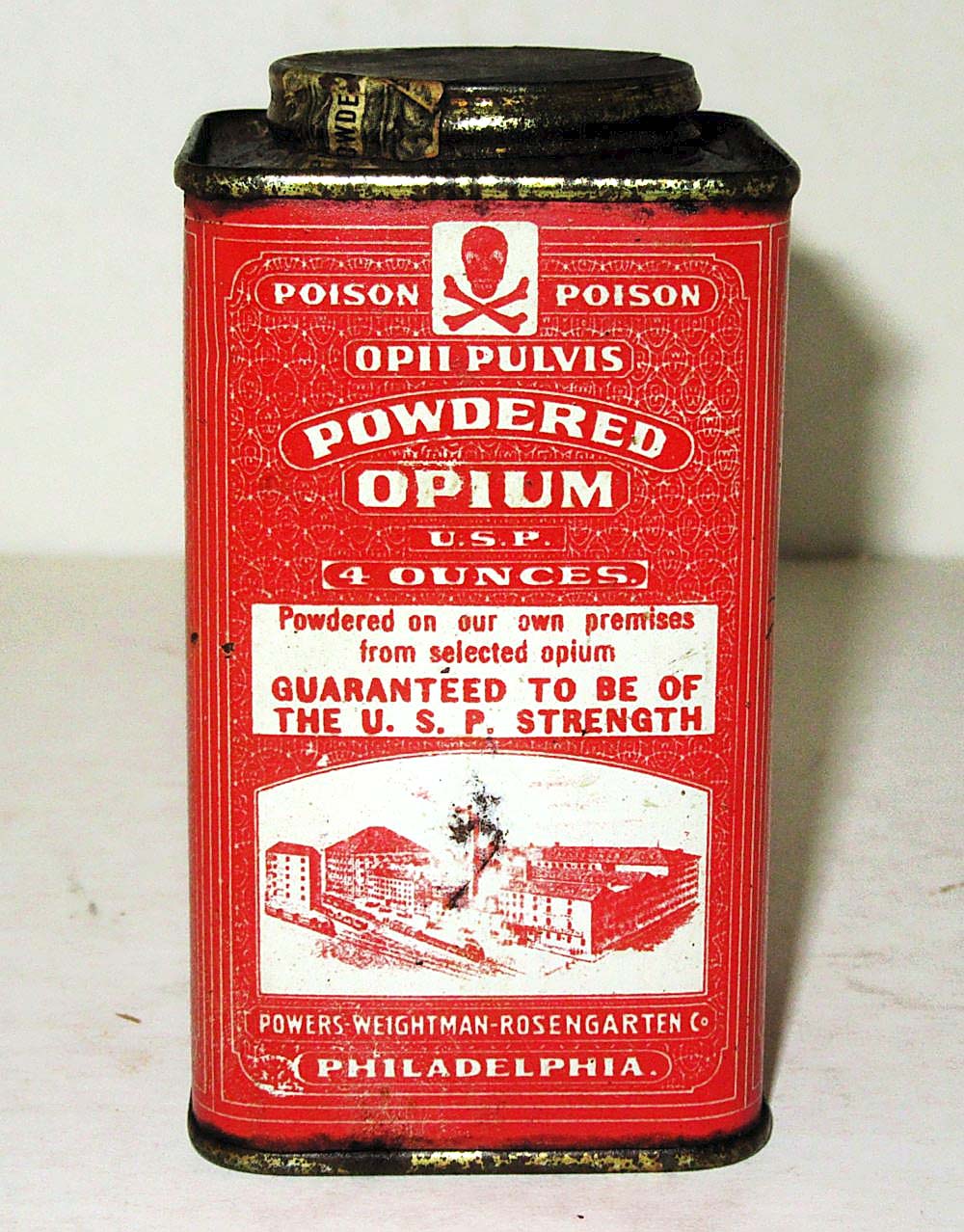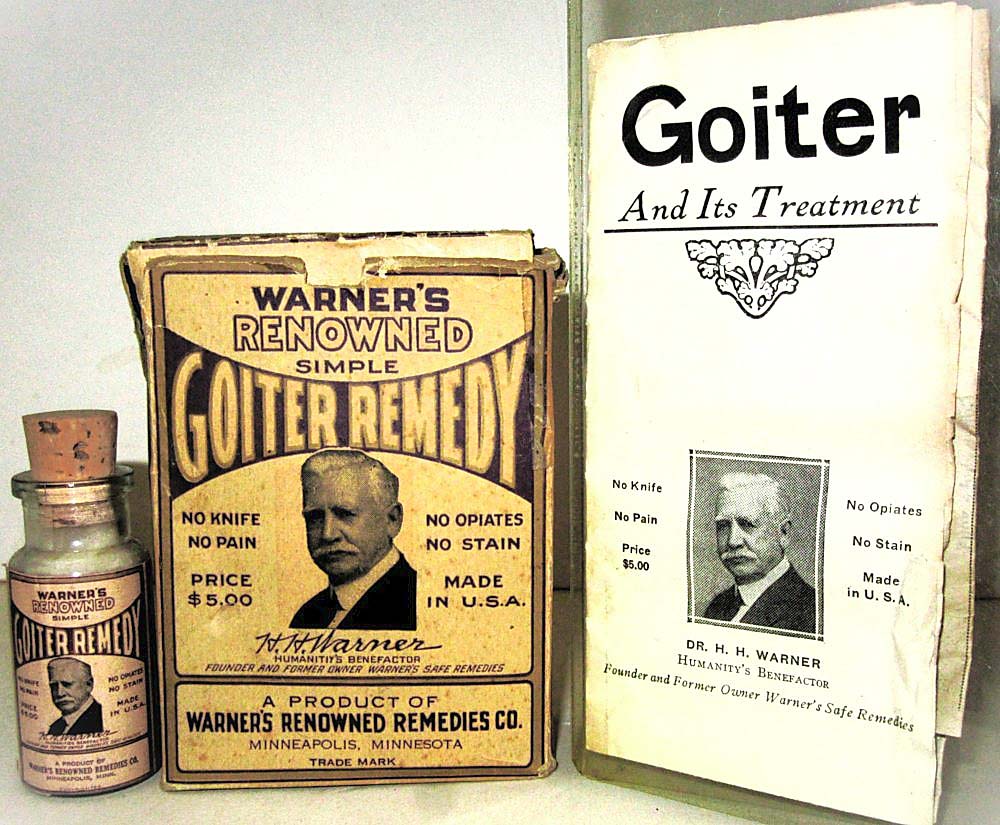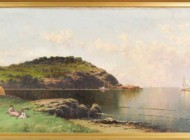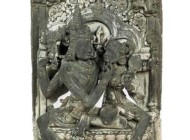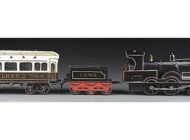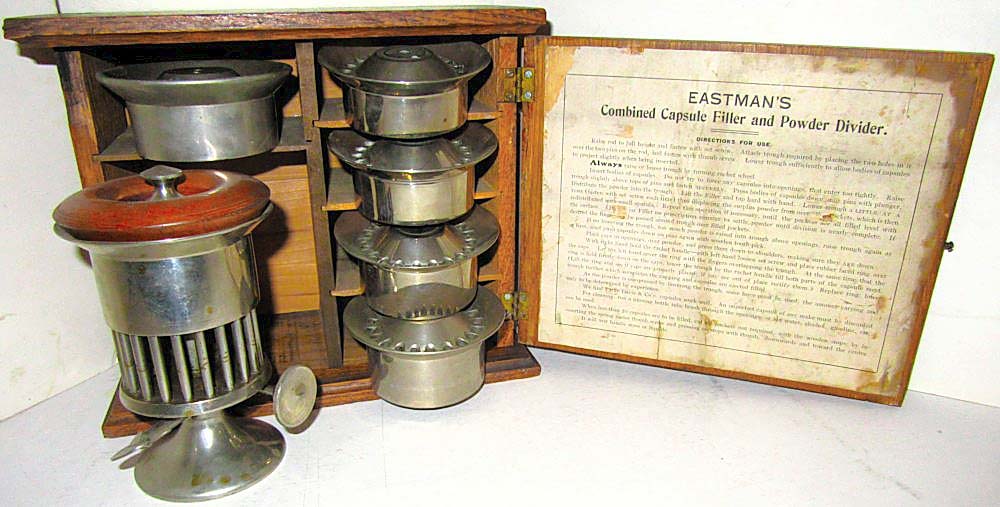
Top-lot status was earned by an Eastman’s Capsule Filler, complete with its 10-by-8½-by-5-inch wooden storage box, as well as five different metal insert rings for filling capsules; the lot was pushed past its $1/1,500 estimate to earn $2,352.
Review by Kiersten Busch
KIRKWOOD, N.Y. — On June 28, McMurray Antiques & Auctions conducted a 150-lot sale featuring patent medicines, pills, tins, apothecary/drugstore and advertising items. The sale realized $40,113 and only five lots passed, earning it a 96 percent sell-through rate.
“I was very pleased with the final results, with only a few ‘low-end’ lots not receiving bids,” owner Terry McMurray explained. “Basically, it was a well-rounded sale with good, clean merchandise in every category; what the collectors are looking for.”
McMurray was also eager to share a little bit about the bidding and buying pools: “Bids came in from across the US and Canada from private collectors, dealers, a few museums and my usual strong buyer in the Washington, DC, area looking for items to buy and donate to the Smithsonian Institute.”
The day was led by an Eastman’s Capsule Filler in its original box. The wooden storage box had six compartments where the device and five separate metal insert rings were stored; the differing ring sizes were for filling different sized capsules. The directions, which were included in the lot, read “We Find Parke, Davis & Co’s Capsules Work Well.” This machine was featured in Charles “Dick” Richardson’s The Pill Rollers. With a previous example selling at McMurray for $2,800, this example sold for the sale-high price of $2,352, flying past its $1/1,500 estimate.
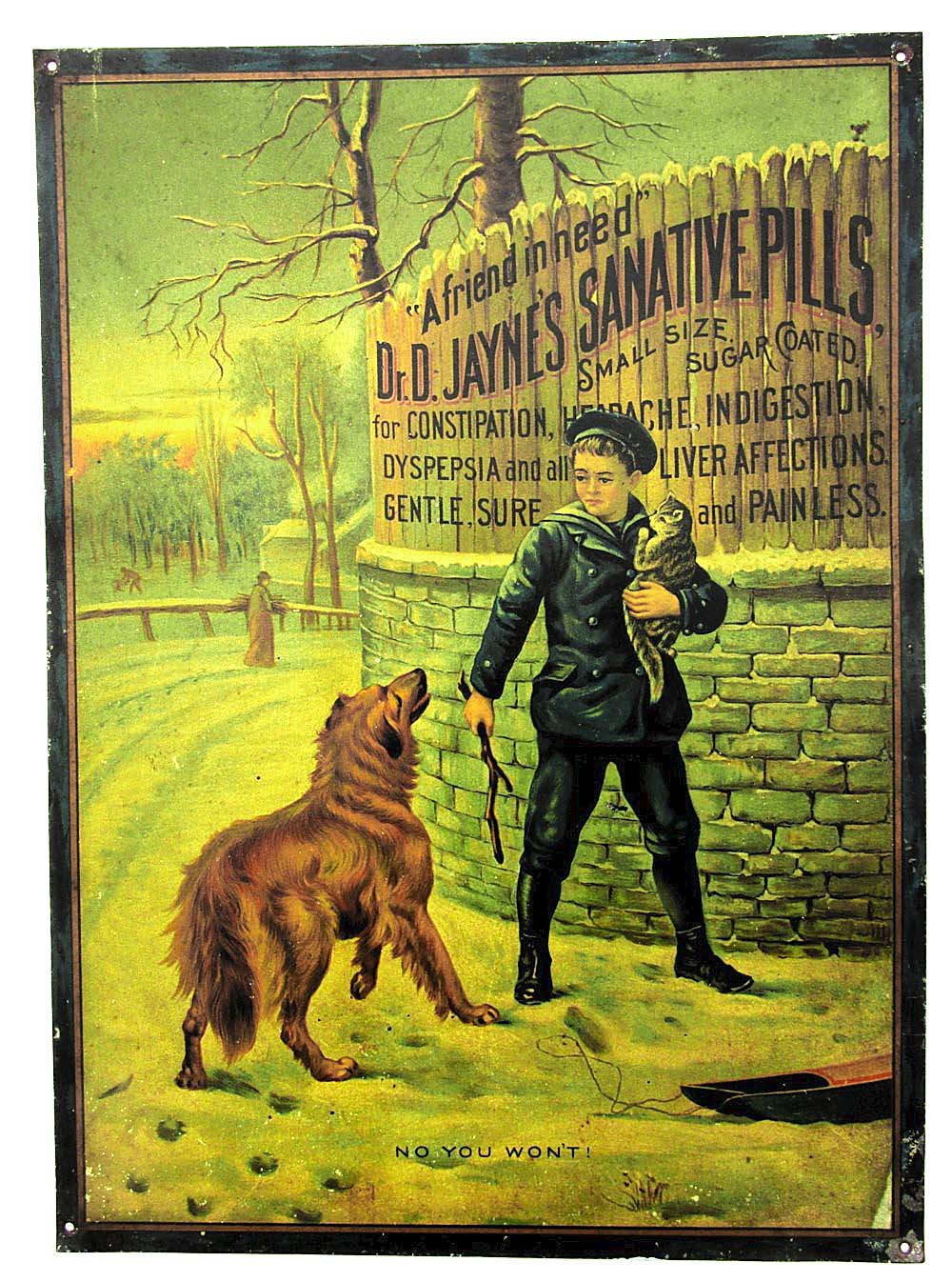
Featuring a young boy protecting his cat from a dog, this tin lithograph advertising Dr D. Jayne’s Sanative Pills, 10½ by 14½ inches framed, was bid to a tail-wagging $2,128 ($600-$1,000).
Advertisements were popular with bidders, as a few examples earned some of the highest prices in the sale. Barking for $2,128 was a tin lithograph for Dr D. Jayne’s featuring man’s best friend. Advertising sanative pills — a sugar-coated pill used for “constipation, headaches, indigestion, dyspepsia and liver affections” — the lithograph was captioned “No you don’t!” and featured an image of a young boy protecting his cat by fending off a dog with a stick. Another Dr D. Jayne’s advertisement, this one a cardboard sign featuring a portrait of a young woman, promoted the company’s alterative, which claimed to cure “blood diseases, scrofula, cancers, goifre, tumors, skin diseases, epilepsy and liver complaints.” It whipped up a remedy for $812.
Another tin sign that crossed the block was cataloged as “rare,” and raced to a $812 finish against a $300/500 estimate. Advertising the Labaree Veterinary Medicine Company in Bellows Falls, Vt., the four-inch circular tray with scalloped edges had an image of the “Pharaoh’s Horses” at its center and was pictured on the back cover of the auction catalog.
“All advertising picturing [Native Americans] is always popular and in-demand,” wrote McMurray in regard to a Dr Morse’s Indian Root Pills paper sign which depicted a Native American on horseback attempting to spear a bear. The sign was deacified and laid on linen, measuring 11 by 13½ inches. It more than doubled the high end of its $500/750 estimate at $1,624.
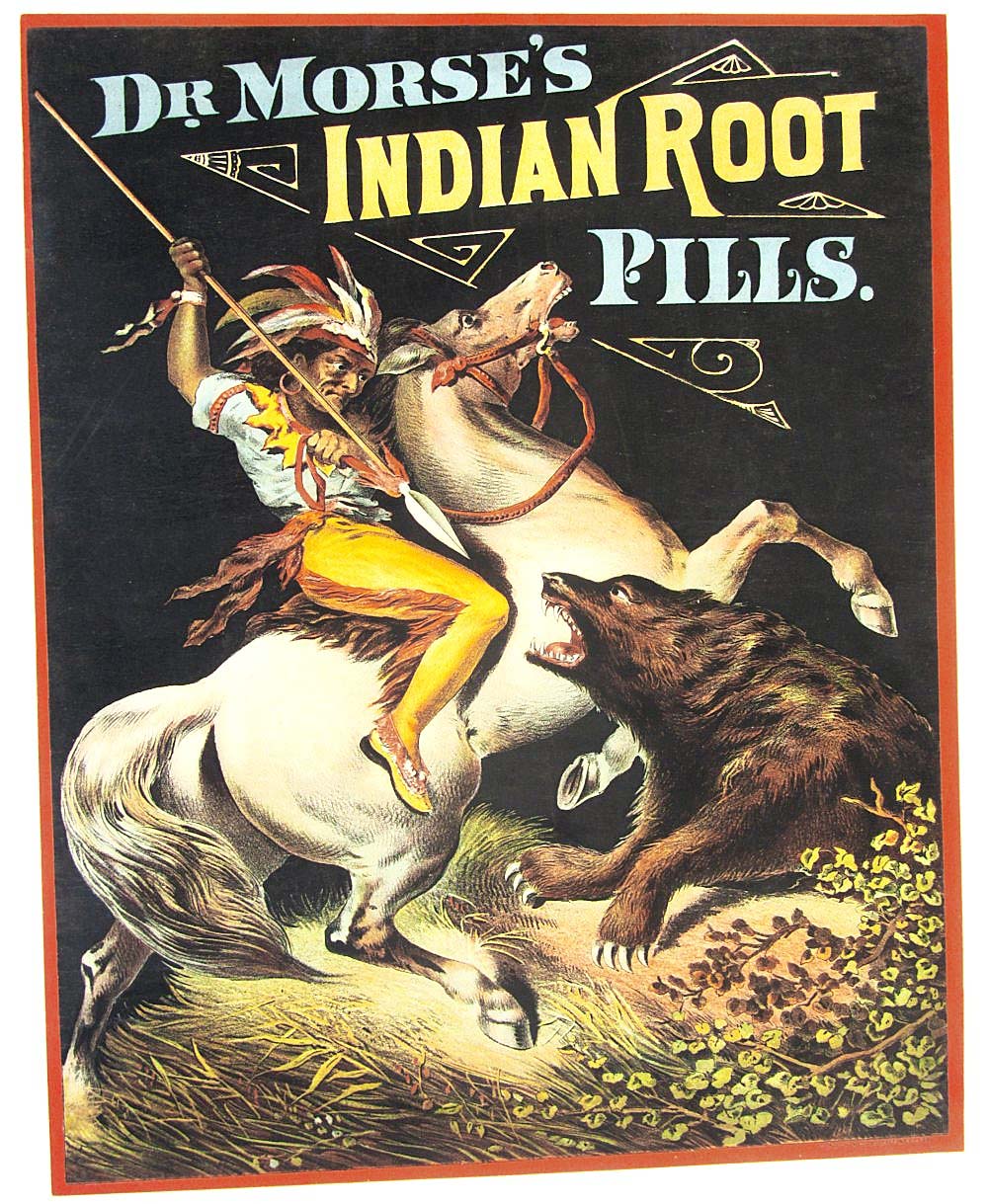
Spearing a $1,624 finish was this paper advertisement for Dr Morse’s Indian Root Pills, 11 by 13½ inches, which featured a Native American on horseback hunting a bear ($500/700).
Tins were led by a Sykes After Shaving Powder canister labeled “Next,” which sold for $1,120 to a barber. The example featured a graphic image of a barber shop with barbers and customers on its front, and directions on its back, as well as “from Boston, Mass.”
Bidders really felt the rush when it came to a one-ounce Antikamnia & Heroin Tablets tin, cataloged as “the most difficult and desirable of the Antikamnia tins to acquire.” Filled with some of its original contents, the cylindrical tin was complete with its correct top dating “Sept. 3, 1890.” A separate example sold four years ago at McMurray for $900, but this example earned more than two times its $300/500 estimate to make $1,064.
“Always popular with collectors” was a four-ounce U.S.P. OPII Pulvis powdered opium tin, labeled “Poison” near the top of its body. Bid to a poisonous $644, the lithographed tin was from the Powers, Weoghtman, Rosengarten Company in Philadelphia and featured a small image of the factory on its front, as well as the text “Powdered on our own premises from selected opium” and “Guaranteed to be of the U.S.P. strength.” The size, four ounces, was one that McMurray had not previously seen.
Medicinal glass bottles also populated some of the highest prices in the sale, led by a glass bottle for The Keeley Treatment for Inebriety, which was originated by Dr L.E. Keeley in Dwight, Ill. The “unique shaped” bottle had a flat back and was embossed “Leslie E. Keeley” at its shoulder. Even rarer, according to catalog notes, was the bottle’s complete label, which included various printed directions, including red text which read “For use only in connection with hypodermic treatment.” The bottle’s rarity and good condition encouraged bidders to double its $200/400 estimate, landing it an $812 finish.
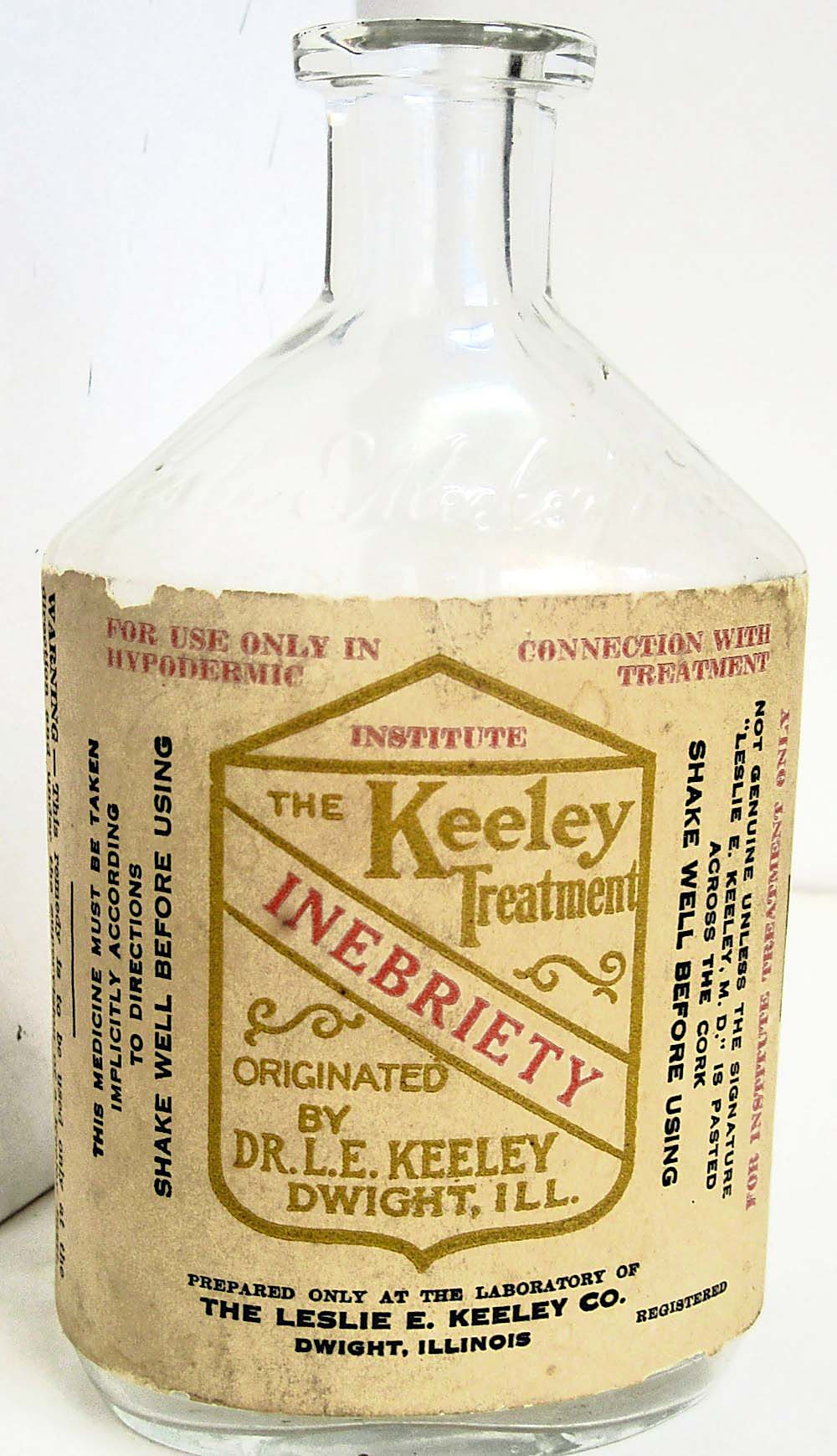
An $812 finish more than doubled the $200/400 estimate for this labeled bottle of The Keeley Treatment for Inebriety made by the Leslie E. Keeley Company, Dwight, Ill., which was rare to find with its label intact.
A fully sealed glass bottle of Jaffray Drug Company’s “medicine for women,” the “‘Caulo’ Brighter Days for Women,” complete with its graphic box was the first example that McMurray had ever seen, and it skyrocketed past its $100/150 estimate to achieve $812. Also included in the lot was a 38-page booklet promoting the virtues of the medicine, with testimonials that dated to 1895, as well as some additional advertising flyers for other Jaffray products.
Also sold with its original contents and box was a 3-inch-tall cylindrical bottle of Warner’s Renowned Simple Goiter Remedy, a “later Warner product after [Warner] moved operation to Minneapolis,” according to catalog notes. Advertised as “$5.00 a box” and a remedy with “No Knife, No Pain, No Opiates, No Stain,” the bottle and its box were also accompanied by the product’s original flyer and other literature; the lot had no side effects at $560.
McMurray’s next auction is scheduled for fall 2025, date forthcoming. Prices quoted include buyer’s premium as reported by the auction house. For additional information, 607-775-5972 or www.mcmurrayauctions.com.

